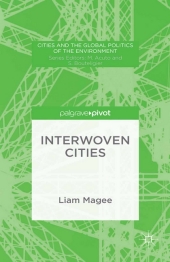 Neuerscheinungen 2015Stand: 2020-02-01 |
Schnellsuche
ISBN/Stichwort/Autor
|
Herderstraße 10
10625 Berlin
Tel.: 030 315 714 16
Fax 030 315 714 14
info@buchspektrum.de |

Liam Magee
Interwoven Cities
1st ed. 2016. 2015. xii, 156 S. 216 mm
Verlag/Jahr: SPRINGER PALGRAVE MACMILLAN; PALGRAVE MACMILLAN UK 2015
ISBN: 1-349-71397-X (134971397X)
Neue ISBN: 978-1-349-71397-4 (9781349713974)
Preis und Lieferzeit: Bitte klicken
Proposing a renovation of the metaphor of the urban fabric, Interwoven Cities develops an analysis of how cities might be woven into alternative patterns, to better sustain social and ecological life.
Introduction: Threads 1. Frictions in the Urban Fabric 1.1. The Total City 1.2. Urbanisms of the New Millennium 1.3. Hyper-Urbanism in the Global South 1.4. Fabrics of a Planetary Urbanism 1.5. Development of the super-suburb: Parramatta, Australia 2. Spreading Out the Fabric: Urban, Rural, Global 2.1. Intertwining Town and Country 2.2. The Emergence of the Global City 2.3. Tangled Threads of Land Registration: Phnom Penh, Cambodia 3. Upholding the Urban Fabric 3.1. Reconditionings: Dispositifs, Assemblages, Fabrics 3.2. An Analytic for a Global Urban Fabric 3.3. Weaving Sustainable Urban Futures 3.4. Refabricating the Interwoven City 3.5. Child Trafficking on the New Front of Global Urbanism: Siliguri, India 4. Refabricating the Urban 4.1. Urban Complexities: Circuitry, Networks, Algorithms 4.2. Computational Epistemologies of the City 4.3. Open Fabrications 4.4. The ´Janus Face´ of Technification 4.5. Simulating the Interwoven City: Fierce Planet 5. Sensing the Urban Fabric 5.1. Opening Up the Forbidden City 5.2. A Carnivalesque Urbanism 5.3. Metis and the City 5.4. Patterning the Interwoven City 5.5. Urban Comedies of the Commons Conclusion: Reweaving the Global Urban Fabric
Liam Magee is Senior Research Fellow at the Institute for Culture and Society at the University of Western Sydney, Australia. His previous publications include Towards A Semantic Web (with W. Cope and M. Kalantzis, 2011), examining the organization of knowledge in an era of linked data and computational reasoning.


